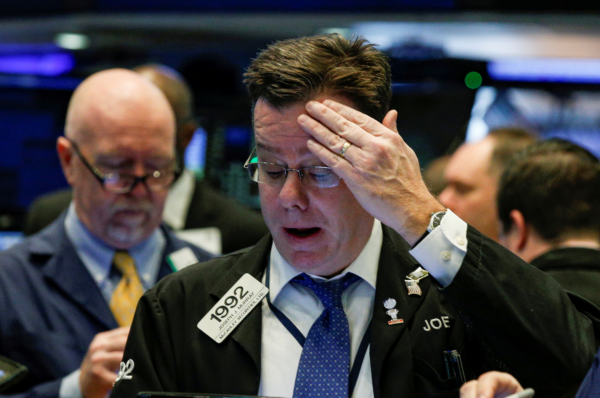
REUTERS/Shannon Stapleton
- The Fed is working on a slow timeline for tapering its asset purchases, according to Mohamed El-Erian.
- The Allianz chief economic advisor said this could be "problematic" for economic stability.
- El-Erian has said repeatedly that the Fed's dovish tone could put the economy at risk.
- Sign up here for our daily newsletter, 10 Things Before the Opening Bell.
The Federal Reserve's timetable for tapering asset purchases and easing its bond buying is slow, according to renowned economist Mohamed El-Erian, and its pace could be "problematic" for economic and financial stability.
With just three Federal Open Market Committee meetings remaining in the year, it wouldn't be surprising if the Fed pushes back its plan to wind down support for the US economy to next year, El-Erian told CNBC on Monday.
"I can see them delay," he told CNBC. "Clearly not September now. November will be tricky. Maybe December."
He added: "The next thing you know, the expectations of the market is that taper it won't happen for a while. And this market loves that. It loves the notion that we will continue to inject $120 billion of liquidity."
El-Erian, the chief economic adviser at Allianz, said Fed Chair Jerome Powell's dovish tone during his much-awaited Jackson Hole speech on August 27 could be put the US economy at risk.
"I worry that that's going to be problematic for both the economic well-being and also financial stability," he told CNBC, adding the Fed's over-accommodative stance will destabilize inflation and wage expectations and may hinder "the transition to long-term inclusive growth."
"I think we are witnessing a higher probability of a policy mistake," he told CNBC. "Is it going to be as big as the 70s? No, it's not. But it is going to be big."
In the 1970s, the US economy was stuck in a period of high inflation and low growth, otherwise known as stagflation.
El-Erian, who is also the president of Queens' College, Cambridge University, said the surge in Delta variant cases in the country could be used by the Fed as a reason to keep flushing the economy with liquidity.
"The problem with the Delta variant, in particular, is it is stagflationary," he told CNBC. "Yes, it depresses demand, or at least, the recovering demand ... but it also disrupts the supply chains even more. And we're seeing this in a lot of parts of the world."
El-Erian has repeatedly said the Fed is late in tapering its asset purchases. He has also pointed to people's lack of understanding of how inflation is already spreading throughout the economy, countering the central bank's longstanding narrative that inflationary pressures are temporary.











